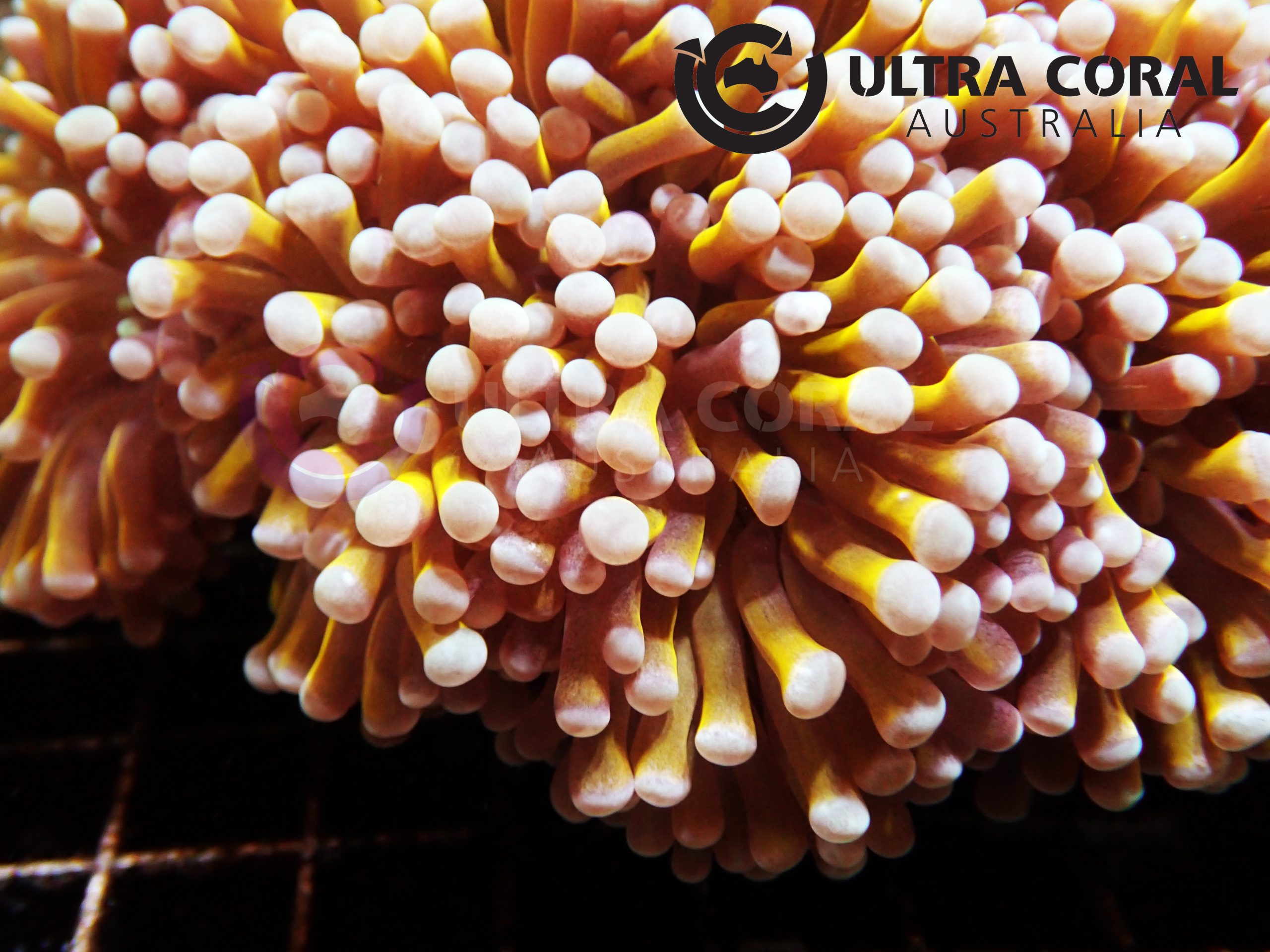Gold Torch – 30% special!!

The Torch Coral or Pom Pom Coral, Euphyllia glabrescens, stand out with their long flowing tentacles.
Their thin tentacles are straight with no branching, with colours ranging from chocolate brown, gray-blue, or gray-green with cream, green, or white tips. Specimens with gold tentacles are highly valued and sought after by hobbyists.
These corals are sensitive to fluctuations in water quality and tend to be susceptible to brown jelly infections; although the death of one branch will not affect the colony.
Exceptionally strong water movement induces the formation of sweeper tentacles and should be avoided.
In the wild, they are found in many different reef habitats and often cluster together on the same reef. They form large colonies with corallite walls forming on the outer edges with the polyps having the ability to completely retract into the skeleton.
Basic Water Parameters
pH
8.0 to 8.3
Salinity
34 - 36ppt
Temperature
24.0 - 26.0 Celsius
Husbandry Requirements
Lighiting
180+ PAR - 110-175 PAR
Flow
Some turbulence required
Aggressiveness
Has long sweeper tentacles and/or strong stinging ability that can damage most other corals.
Acclimation Guide
- It is highly recommended to acclimate all corals to a new environment to prevent shocking corals.
- Place the corals in the water from the packing bags and slowly add the water from new environment (Dripping method is recommended).
- Use the water parameter above as a guide.
- When the vessel becomes full , replace the water with the new environment water by a small amount at a time.
- Ensure the water temperature matches with the new environment’s water.
- After the corals have spent adequate time in the acclimation water, gently place the corals to a new environment.
- It is recommended to place new corals under lower light intensity than usually required. Once corals show no signs of stress, it can be moved to higher lighting area gradually.”


